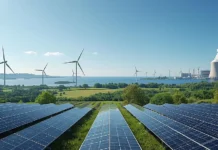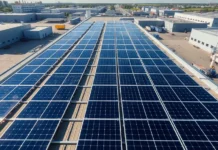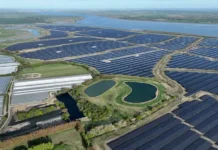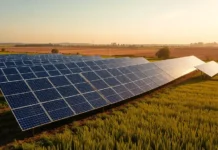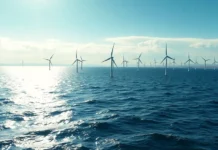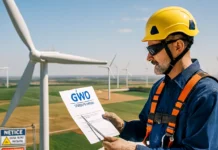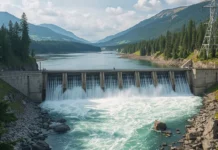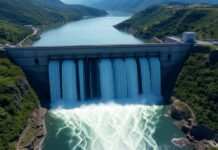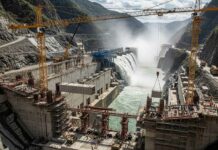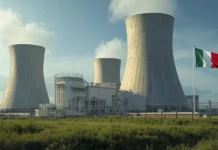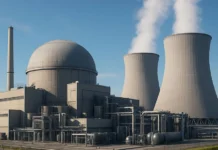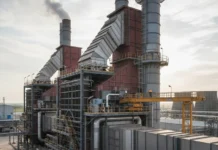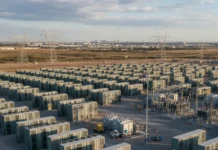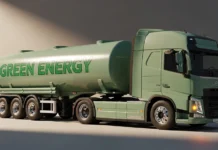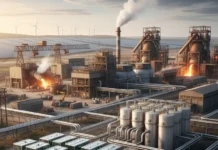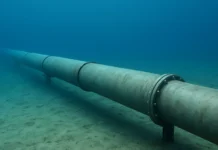The launch by the UK of its 33rd offshore oil and gas licencing round so as to strengthen the country’s energy security to fight the backdrop of global energy woes that are pushed by the crisis in Ukraine has gone on to spark environmental activists’ ire. This has now led to a lawsuit since Greenpeace is planning to take the matter to court over what looks like an oil and gas decision that’s unlawful.
After the 2019 round, a review was launched that was based on the future offshore oil and gas licencing regime, which was part of a broader aim to achieve net zero emissions by 2050, and thereby the annual licencing activity got paused. That said, things did change in 2022 due to the global energy crisis that took the world by storm as nations scrambled, especially those in Europe, to push energy security and get rid of the gas crunch.
The latest licencing process, which is believed to be significantly boosting the nation’s energy security, opened up on October 7 last year and offered acreage throughout the North Sea, including the north of it, the Central North Sea, West of Shetland, the Southern North Sea, and the East Irish Sea, including the four priority areas known for hydrocarbon deposits.
The UK regulator went on to highlight in January this year that there happened to be a very keen interest in such areas that could go on to witness production in almost 18 months, attracting 115 bids in total throughout 259 blocks as well as part blocks from 76 companies. This is similar to the 32nd licencing round in 2019, which went on to receive 104 applications for a total of 245 blocks as well as part blocks, when the entire 768 blocks as well as part blocks had been offered vis-à-vis 931 blocks in the round that recently took place.
This particular licencing round got launched in the middle of significant pressure from environmentalists to shift to better and cleaner sources of energy. Apparently, multiple protests were held across the UK by climate activists so as to put an end to the fossil fuel projects as well as investments. These activists went on to claim that the answer to fighting the energy and climate crises lies in speeding up investments in renewables.
The UK government’s plans to help numerous energy projects, pledging to fasten the efforts to unlock more investments and also slash the red tape so as to make it faster to put through these five oil and gas developments and also many carbon capture and storage hydrogen as well as offshore wind projects, went on to find a place in the environmentalists’ crosshairs.
It is well to be noted that, as per Greenpeace, its lawyers have now reached the court to challenge the reckless decision to greenlight another new oil and gas round without even properly verifying the damage it is going to do to the environment. The group goes on to claim that the government ignored 80% of the carbon emissions these licences would go on to produce as and when the oil and gas got burned.
To highlight the importance of the action, Greenpeace has made a reference to the heatwaves that have hit the world this summer as thousands of holidaymakers evacuated throughout the weekend in Greece due to the wildfires as the majority of the parts of North America, Asia, and Europe keep burning up.
The climate activists claim that even though these conditions have been caused by the weather conditions generated by fossil fuels, the government of the UK is still planning to go ahead with handing out almost 130 more new licences across the North Sea, thereby adding fuel to the fire. Because of this, Greenpeace is actually urging the government not to commit to any new oil and gas since climate experts are of the opinion that it will be a disaster for the environment.
Moreover, Greenpeace highlights that new oil and gas won’t do a great deal to get the energy bills down, stating that whether it’s high energy bills, soaring food prices, or being taken out of a burning country, the climate crisis is indeed affecting all of us in more tangible ways than just one.
With the national elections coming up, Labour’s energy pathway, if they win, looks to make the UK an absolute clean power by 2030 by taking the help of marine as well as tidal energy, as well as offshore and onshore solar, wind, and nuclear power. It is well to be noted that when the news of the Labour Party’s plans to block all the latest North Sea oil and gas developments began making the rounds, they indeed elevated outrage in certain areas over potentially exposing the country to imports that are more costly since one of the recent reports warned that Britain might as well need to import almost 80% of its oil and gas by 2030 with no new investment when it comes to domestic production.
Many people go on to believe that the turn towards renewables should be a gradual move rather than hastily moving away from the new oil and gas developments, however, the UK’s windfall tax surge on the oil and gas manufacturers’ profits, plus the political challenges and uncertainties over the industry’s future, are looked upon as additional roadblocks to investments when it comes to domestic oil and gas.
Greenpeace, which apparently is championing the move towards renewables, states that what they need is a government that will go on to invest in an affordable and clean energy system that is a perfect fit for the 21st century, with a grid that’s upgraded and cheap, offering clean renewable power. This is the only way one can fight the crisis pertaining to the cost of living, thereby guaranteeing energy security and also keeping the climate safe.
Apparently, this isn’t the UK government’s first encounter with the law when it comes to climate action, as there is another legal battle that awaits them with three organisations—ClientEarth, Friends of the Earth, and the Good Law Project—all set to take the country for the second time in two years on its feeble and inadequate strategy when it comes to tackling climate change as well as weak net-zero plans.
These aren’t the only issues that the UK is grappling with, as it also goes on to face an upskilling crisis in the energy transition era as it works on building a workforce, thereby bringing a future of low carbon and green energy to life. These issues are indeed perceived as hurting the country’s chances of hitting its net-zero targets.

